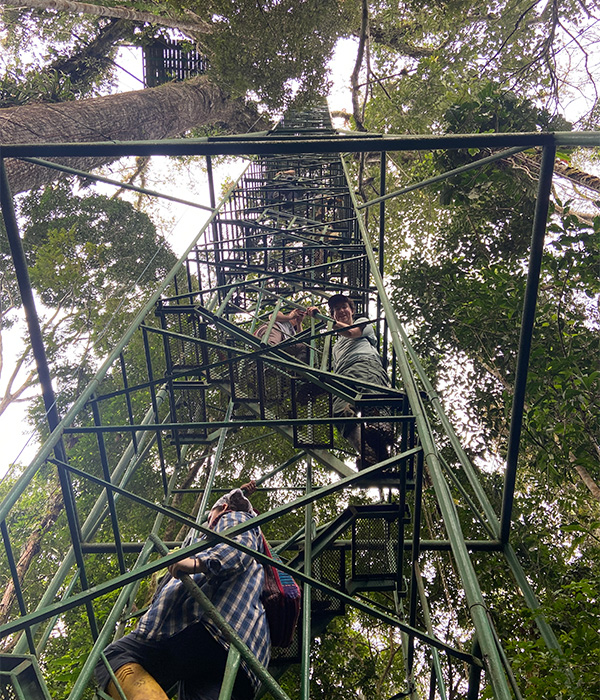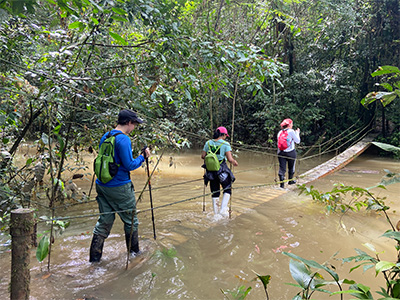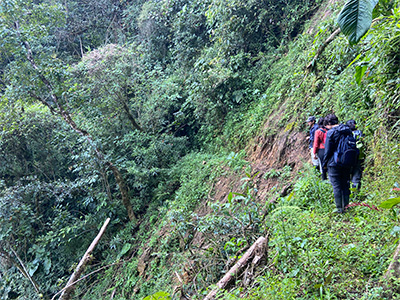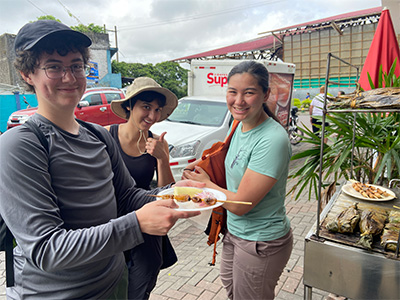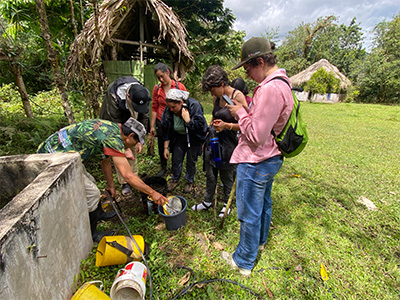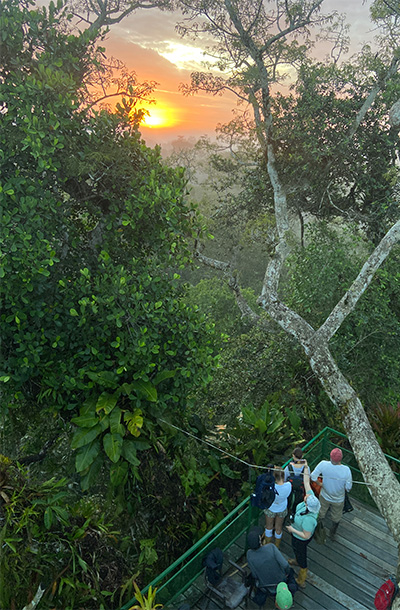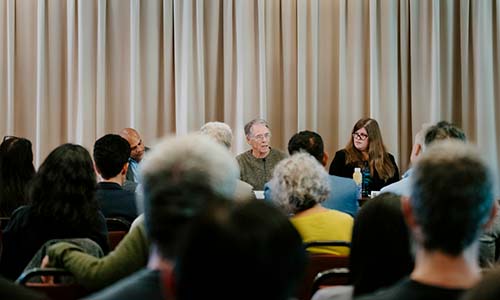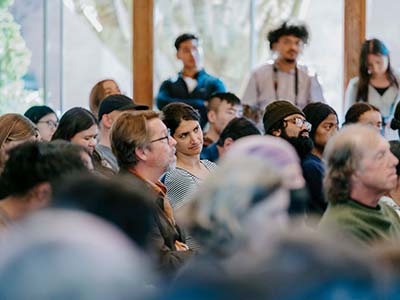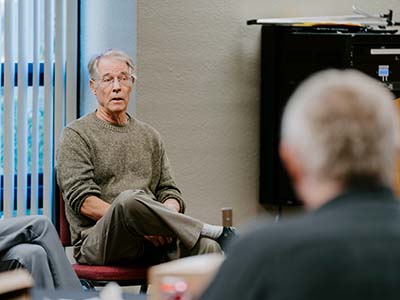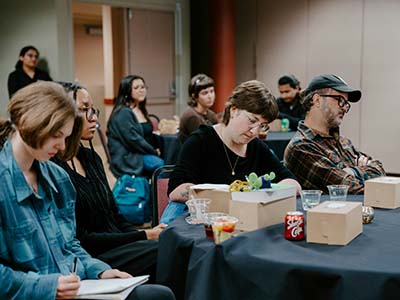SFSU offers full scholarships for first-of-its-kind PK-12 certificate in climate justice education
Students participate in the inaugural cohort for the Graduate Certificate in PK-12 Climate Justice Education program that started summer 2025.
The program trains PK-12 educators to teach climate change, justice-based solutions at all grade levels
SAN FRANCISCO – September 25, 2025 – San Francisco State University (SFSU), the premier public university that educates and equips students to thrive in a global society, is offering scholarships to fully cover the cost of attendance to pursue its Graduate Certificate in PK-12 Climate Justice Education.
The certificate provides teachers from pre-kindergarten to 12th grade the skills and knowledge to effectively teach about climate change and climate justice, which focuses on the unequal impacts of climate change on marginalized and underserved populations as well as justice-based solutions to address those inequities. SFSU is the first major public university to offer a PK-12 certificate specifically focused on climate justice education — not just climate change.
“Young people are interested in climate change and doing something about it. However, they don’t know how to approach it or even that they have the agency to take climate action,” said Aritree Samanta, co-director of the Climate HQ campus hub that promotes and supports climate-related activities across the University. “Teachers are best positioned to work with young people. Training them is hugely important because they can channel students’ interests and passions to where they’d be most effective.”
About the Graduate Certificate in PK-12 Climate Justice Education
This certificate meets the clear need for experienced PK-12 teachers to be trained in climate change education across the curriculum. Californians are experiencing the effects of climate change as wildfires, floods and droughts become more common. This reality has led to the passage of Assembly Bill 285, which requires PK-12 schools to teach climate change.
In addition, a North American Association for Environmental Education survey found that most teachers support teaching their students about climate change but many feel they don’t have the knowledge to teach the topic. “Our certificate helps change that,” said SFSU Professor of Elementary Education Stephanie Sisk-Hilton, who is also a co-lead for the certificate. “It provides the knowledge and a new way of teaching centered around hope and action.”
The certificate also supports educators across all grade levels. “Whether you’re teaching early childhood education or at a high school, or you’re teaching informal education outside the classroom, this certificate caters to all teachers regardless of where and what level they teach,” Sisk-Hilton said. “This allows participants to collaborate with other educators at similar grade levels to discuss and brainstorm how they can creatively bring climate justice education to the students they teach.”
Another important element of this certificate is its interdisciplinary approach, which is why four of the academic colleges at SFSU were involved in the development of the certificate: the Graduate College of Education, College of Ethnic Studies, College of Science & Engineering and College Professional & Global Education. This type of collaboration is needed because climate change is a multifaceted, complex issue that requires people from all backgrounds to work together — not just people from STEM fields.
Certificate and scholarship logistics
The certificate is a 12-unit, one-year program that starts during the summer semester and ends the subsequent spring semester. The program is primarily conducted remotely to accommodate full-time educators and their schedules, with select in-person days.
Scholarships that cover the full cost of attendance are available, with priority given to educators in the Bay Area. The scholarships are made possible by a gift from philanthropist and SFSU alumna Neda Nobari in support of the certificate.
Applications open Oct. 1 for the next cohort starting June 2026. Apply by March 1, 2026.
Learn more about the certificate, what you’ll learn and how to apply.
